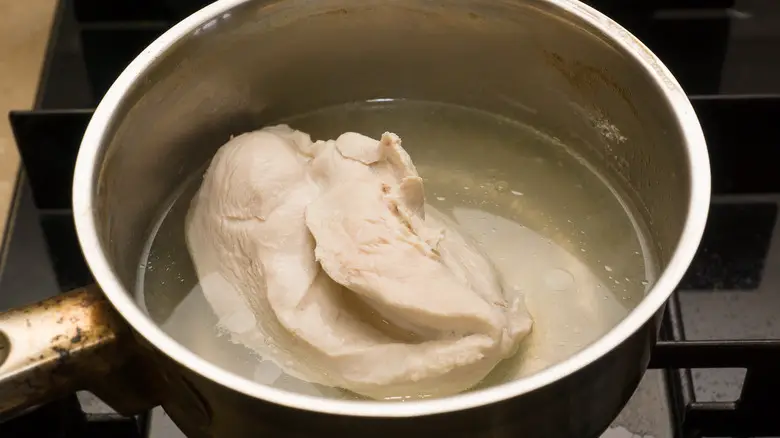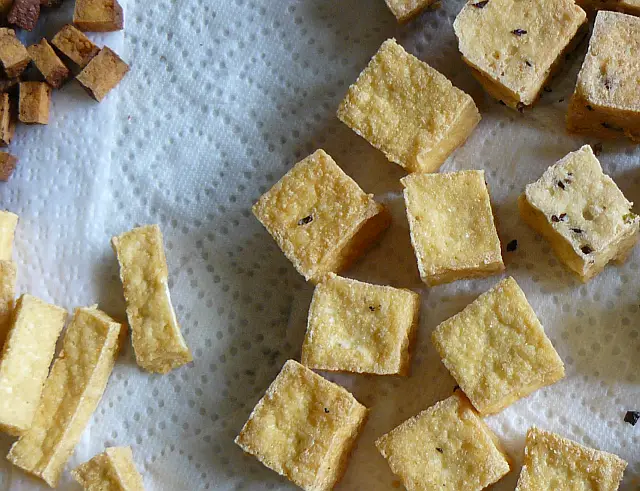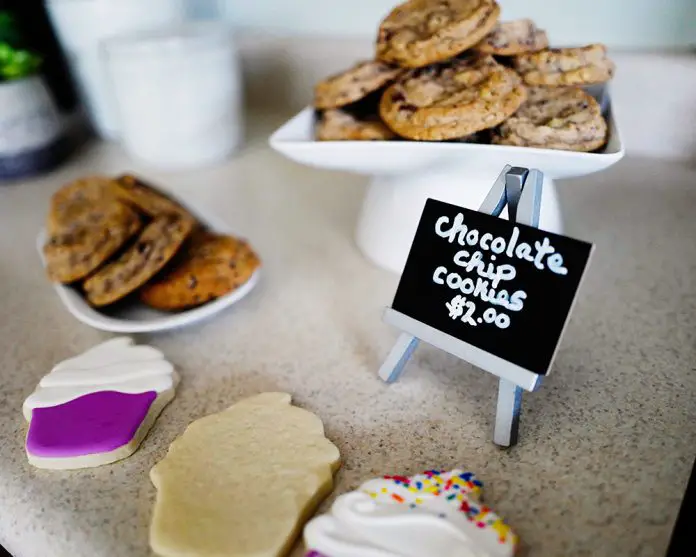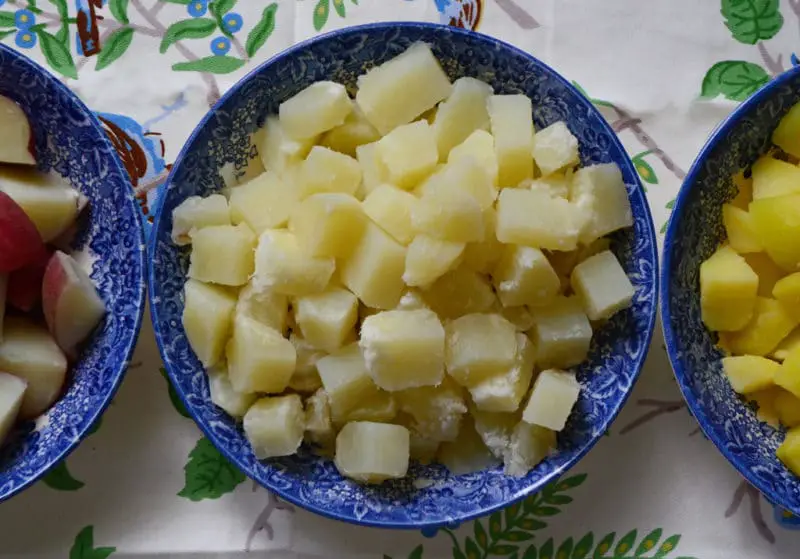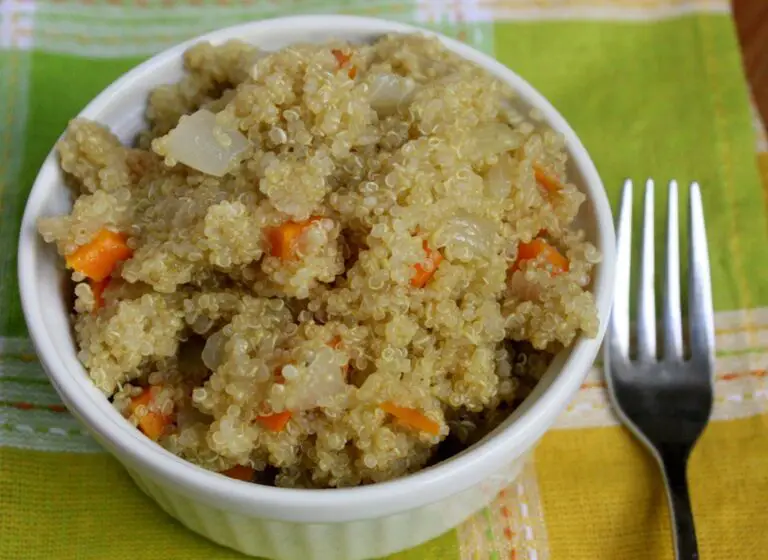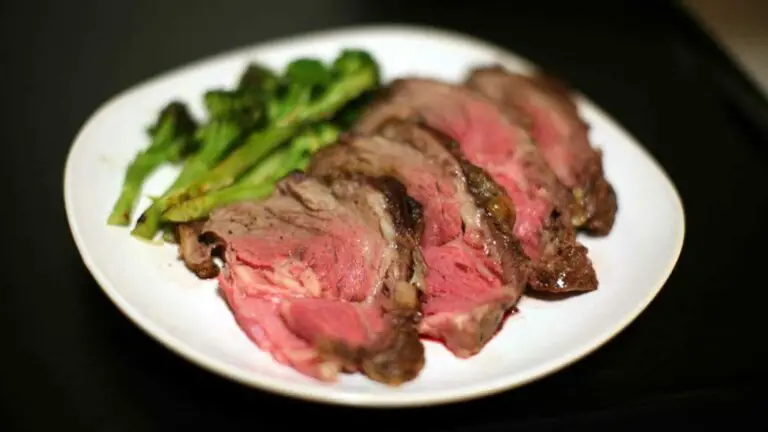When it comes to quick and convenient meals, pre cooked chicken is often a go-to option. However, there is a concern lingering in the back of our minds – can consuming pre cooked chicken lead to food poisoning? It’s important to understand the risks and take necessary precautions to ensure our health and safety.
Key Takeaways:
- Pre cooked chicken is generally safe to eat if handled and stored properly.
- Cross-contamination, improper reheating, and incorrect storage temperatures can increase the risk of food poisoning from pre cooked chicken.
- Symptoms of food poisoning from pre cooked chicken may include nausea, diarrhea, and abdominal pain.
- Proper handling and storage, along with safe reheating practices, can help prevent food poisoning.
- Individuals with weakened immune systems may be more susceptible to foodborne illnesses and should exercise caution when consuming pre cooked chicken.
Is Pre Cooked Chicken Safe to Eat?
According to the US Department of Agriculture (USDA), pre cooked chicken is safe to eat as long as it is handled and stored properly. This means following food safety guidelines, such as heating it to the correct temperature, refrigerating it promptly, and consuming it within a certain timeframe.
Proper Handling and Storage
To ensure the safety of pre cooked chicken, it is important to handle it with care. This includes washing hands thoroughly before and after handling the chicken, as well as using separate utensils and cutting boards for raw and cooked chicken to prevent cross-contamination.
When storing pre cooked chicken, it should be kept at a safe temperature of 40°F or below in the refrigerator. This helps to slow down the growth of bacteria and prevent foodborne illnesses. It is also important to consume the chicken within a reasonable timeframe to ensure its freshness and safety.
Reheating Tips
When reheating pre cooked chicken, it is crucial to bring it to an internal temperature of 165°F to kill any potential bacteria. This can be done by using a food thermometer to ensure the correct temperature is reached. It is recommended to reheat the chicken in the oven, microwave, or on the stovetop until it is piping hot throughout.
Enjoy Pre Cooked Chicken Safely
By following proper handling and storage practices, as well as reheating the chicken to the correct temperature, you can safely enjoy pre cooked chicken. However, it is important to note that certain individuals, such as pregnant women, young children, older adults, and those with weakened immune systems, may be more susceptible to foodborne illnesses. In these cases, it may be best to avoid consuming pre cooked chicken altogether to minimize the risk of food poisoning.
Remember, food safety should always be a top priority when it comes to pre cooked chicken and any other type of food. By taking the necessary precautions and being aware of the risks, you can enjoy your meals without worrying about the potential for foodborne illnesses.
| Safe Handling Tips for Pre Cooked Chicken |
|---|
| Wash hands before and after handling the chicken |
| Use separate utensils and cutting boards for raw and cooked chicken |
| Store pre cooked chicken at 40°F or below in the refrigerator |
| Reheat pre cooked chicken to an internal temperature of 165°F |
| Avoid consuming pre cooked chicken if you are pregnant, young, elderly, or have a weakened immune system |
Common Causes of Food Poisoning from Pre Cooked Chicken
When it comes to food poisoning from pre cooked chicken, there are several common causes that can contribute to the risk of illness. It’s important to be aware of these factors to ensure safe consumption of pre cooked chicken. Here are the main causes to consider:
- Cross-Contamination: One of the primary causes of food poisoning from pre cooked chicken is cross-contamination with raw poultry. This can occur when raw chicken juices come into contact with cooked chicken, utensils, or other surfaces. It’s crucial to separate raw and cooked foods and use separate utensils and cutting boards to prevent the spread of harmful bacteria.
- Improper Reheating: Another common cause of food poisoning is improper reheating of pre cooked chicken. If the chicken is not heated to the correct internal temperature, bacteria that may be present can survive and cause illness. It’s important to ensure that pre cooked chicken is reheated to an internal temperature of 165°F to kill any potential bacteria.
- Incorrect Temperature Storage: Storing pre cooked chicken at incorrect temperatures can also contribute to the growth of harmful bacteria. It should be stored at a safe temperature of 40°F or below in the refrigerator. Failure to do so can allow bacteria to multiply, increasing the risk of food poisoning.
By being aware of these common causes, you can take the necessary precautions to minimize the risk of food poisoning from pre cooked chicken. Proper handling, reheating, and storage practices are key to ensuring the safety of your meals.
| Common Causes of Food Poisoning from Pre Cooked Chicken |
|---|
| Cross-Contamination with raw poultry |
| Improper reheating |
| Incorrect temperature storage |
Symptoms of Food Poisoning from Precooked Chicken
When it comes to consuming precooked chicken, it’s essential to be aware of the potential symptoms of food poisoning. While the symptoms may vary from person to person, the most common signs of foodborne illnesses caused by precooked chicken include:
- Nausea: A feeling of queasiness or an unsettled stomach.
- Vomiting: The forceful expulsion of stomach contents through the mouth.
- Diarrhea: Frequent and loose bowel movements.
- Abdominal pain: Discomfort or cramping in the stomach area.
- Fever: An elevated body temperature often accompanied by chills.
- Muscle aches: Soreness or pain in the muscles.
If you experience any of these symptoms after consuming precooked chicken, it is crucial to seek medical attention, especially if the symptoms are severe or if they last for more than a few days. Food poisoning can lead to dehydration and other complications, so it is important not to ignore these signs.
It’s worth noting that the symptoms of food poisoning from precooked chicken are similar to those of other forms of foodborne illnesses. Therefore, it may sometimes be challenging to pinpoint the exact cause without proper laboratory testing. If you suspect food poisoning from precooked chicken, it is advisable to inform your healthcare provider of your recent consumption.
By staying vigilant and aware of the symptoms, we can take the necessary actions to address food poisoning effectively and prevent its spread to others. However, it’s always best to prioritize proper handling, storage, and cooking techniques to minimize the risk of foodborne illnesses altogether.
Prevention Measures for Food Poisoning from Pre Cooked Chicken
When it comes to preventing food poisoning from pre cooked chicken, following proper handling and storage practices is crucial. By taking the necessary precautions, you can reduce the risk of harmful bacteria growth and ensure the safety of your meals. Here are some important prevention measures to keep in mind:
1. Wash Hands Thoroughly
Before and after handling pre cooked chicken, it is essential to wash your hands thoroughly with soap and water. This helps to eliminate any potential bacteria that may be present on your hands and prevents cross-contamination.
2. Keep Raw and Cooked Foods Separate
To avoid cross-contamination, it is important to keep raw and cooked foods separate. This means using separate cutting boards, utensils, and containers for raw and cooked chicken. Additionally, ensure that raw chicken does not come into contact with other foods during storage in the refrigerator.
3. Reheat to a Safe Internal Temperature
When reheating pre cooked chicken, it is crucial to reach a safe internal temperature of 165°F (74°C) to kill any potential bacteria. Use a food thermometer to accurately measure the temperature and ensure that it is evenly heated throughout.
4. Promptly Refrigerate Leftovers
After enjoying a meal with pre cooked chicken, it is important to refrigerate any leftovers within two hours of cooking. Bacteria can multiply rapidly at room temperature, so prompt refrigeration helps to inhibit their growth. Store leftovers in airtight containers to maintain freshness and prevent cross-contamination.
| Prevention Measures | Description |
|---|---|
| Wash Hands Thoroughly | Before and after handling pre cooked chicken, wash your hands with soap and water to eliminate bacteria. |
| Keep Raw and Cooked Foods Separate | Use separate utensils, cutting boards, and containers for raw and cooked chicken to prevent cross-contamination. |
| Reheat to a Safe Internal Temperature | Ensure that pre cooked chicken is reheated to 165°F (74°C) to kill any potential bacteria. |
| Promptly Refrigerate Leftovers | Refrigerate any leftovers within two hours of cooking to inhibit bacterial growth. |
By implementing these prevention measures, you can enjoy the convenience of pre cooked chicken while minimizing the risk of food poisoning. Remember to always prioritize food safety and follow proper handling guidelines for a safe and enjoyable dining experience.
Safe Handling Tips for Pre Cooked Chicken
When it comes to pre cooked chicken, proper handling is crucial to ensure food safety and prevent the risk of food poisoning. Here are some important tips to keep in mind:
1. Storage:
Store pre cooked chicken at a safe temperature of 40°F or below in the refrigerator. This helps to slow down the growth of bacteria and maintain the quality of the chicken. Make sure to wrap the chicken tightly or store it in airtight containers to prevent cross-contamination with other foods.
2. Reheating:
When reheating pre cooked chicken, it is important to bring it to an internal temperature of 165°F. This kills any potential bacteria that may have developed during storage. Use a food thermometer to ensure that the chicken reaches the correct temperature throughout.
3. Avoid Cross-Contamination:
To prevent the spread of bacteria, use separate cutting boards, utensils, and plates for raw and cooked chicken. This helps to minimize the risk of cross-contamination and the transfer of harmful bacteria to cooked chicken or other foods.
4. Proper Cleanup:
After handling pre cooked chicken, wash your hands thoroughly with soap and warm water for at least 20 seconds. Clean any surfaces or utensils that came into contact with the raw chicken to eliminate any potential bacteria.
By following these safe handling tips, you can enjoy pre cooked chicken without worrying about food poisoning. Remember, food safety is essential for maintaining good health and well-being.
When to Avoid Pre Cooked Chicken
While pre cooked chicken is generally safe to eat when handled and stored properly, there are certain situations where it may be best to avoid consuming it altogether. Individuals with specific health conditions or those who are more susceptible to foodborne illnesses should exercise caution when it comes to pre cooked chicken. Here are some instances when it may be advisable to avoid it:
Pregnancy:
Pregnant women should take extra precautions when it comes to food safety, including avoiding certain foods that may pose a higher risk of contamination. Pre cooked chicken, especially if not handled and reheated properly, can carry harmful bacteria that can harm both the mother and the baby. It is advisable for pregnant women to consult with their healthcare provider for guidance on safe food choices.
Young Children:
Young children have developing immune systems and are more vulnerable to foodborne illnesses. They may not be able to fight off infections as effectively as adults, which increases the risk of complications from consuming contaminated pre cooked chicken. It is important to ensure that any food given to young children, including pre cooked chicken, is safe, properly cooked, and stored correctly.
Older Adults:
Older adults may have weakened immune systems, making them more susceptible to foodborne illnesses. Consuming pre cooked chicken that has not been handled or stored properly can lead to severe infections and complications in this vulnerable population. It is recommended for older adults to exercise caution and follow proper food safety practices to minimize the risk of food poisoning.
Weak Immune Systems:
Individuals with weakened immune systems, such as those undergoing chemotherapy or with certain medical conditions, are more prone to infections and should be cautious about consuming pre cooked chicken. These individuals may have a harder time fighting off harmful bacteria present in poorly handled or reheated pre cooked chicken, which can lead to severe illness. It is advisable for them to consult with their healthcare provider for personalized guidance.
| Group | Risk Level |
|---|---|
| Pregnant women | Higher |
| Young children | Higher |
| Older adults | Higher |
| Individuals with weakened immune systems | Higher |
Conclusion
In conclusion, while pre cooked chicken offers convenience for quick meals, it is essential to handle and store it properly to prevent the risk of food poisoning. By following food safety guidelines set by the US Department of Agriculture (USDA), such as heating the chicken to the correct temperature, refrigerating it promptly, and consuming it within a certain timeframe, you can ensure its safety for consumption.
Common causes of food poisoning from pre cooked chicken include cross-contamination with raw poultry, improper reheating, and storage at incorrect temperatures. These factors can lead to the growth of harmful bacteria, resulting in foodborne illnesses. Symptoms of food poisoning from pre cooked chicken are similar to those of other forms of foodborne illnesses, such as nausea, vomiting, diarrhea, and abdominal pain.
To prevent food poisoning, it is crucial to practice safe handling measures. This includes washing hands thoroughly before and after handling pre cooked chicken, keeping raw and cooked foods separate, reheating leftovers to a safe internal temperature of 165°F, and storing leftovers in the refrigerator within two hours of cooking. However, individuals such as pregnant women, young children, older adults, and those with weakened immune systems may want to avoid consuming pre cooked chicken altogether to minimize the risk of food poisoning.
In summary, pre cooked chicken can be enjoyed safely as long as proper handling and storage practices are followed. Be aware of the risks associated with pre cooked chicken and seek medical attention if any symptoms of food poisoning occur. By taking these precautions, you can confidently incorporate pre cooked chicken into your meals without compromising your health.
FAQ
Q: Can you get food poisoning from pre cooked chicken?
A: Yes, there is a risk of food poisoning from pre cooked chicken if it is not handled and stored properly.
Q: Is pre cooked chicken safe to eat?
A: According to the US Department of Agriculture (USDA), pre cooked chicken is safe to eat as long as it is handled and stored properly.
Q: What are the common causes of food poisoning from pre cooked chicken?
A: The most common causes of food poisoning from pre cooked chicken include cross-contamination with raw poultry, improper reheating, and storage at incorrect temperatures.
Q: What are the symptoms of food poisoning from pre cooked chicken?
A: The symptoms of food poisoning from pre cooked chicken are similar to those of other forms of foodborne illnesses and may include nausea, vomiting, diarrhea, abdominal pain, fever, and muscle aches.
Q: How can food poisoning from pre cooked chicken be prevented?
A: To prevent food poisoning from pre cooked chicken, it is crucial to handle and store it properly. This includes washing hands thoroughly before and after handling, keeping raw and cooked foods separate, reheating leftovers to a safe internal temperature, and storing leftovers in the refrigerator within two hours of cooking.
Q: What are some safe handling tips for pre cooked chicken?
A: When handling pre cooked chicken, it is important to ensure that it is stored at a safe temperature of 40°F or below in the refrigerator. It should be reheated to an internal temperature of 165°F to kill any potential bacteria. Additionally, it is important to use separate utensils and cutting boards for raw and cooked chicken to avoid cross-contamination.
Q: When should pre cooked chicken be avoided?
A: Certain individuals, such as pregnant women, young children, older adults, and those with weakened immune systems, may be more susceptible to foodborne illnesses. In some cases, it may be best to avoid consuming pre cooked chicken altogether to minimize the risk of food poisoning.
